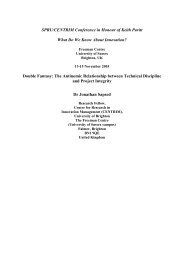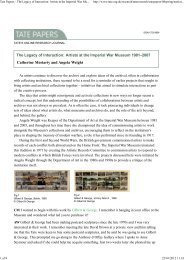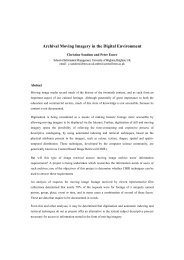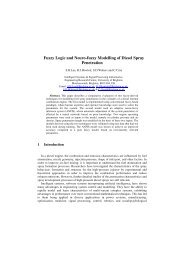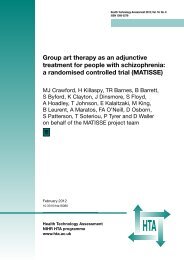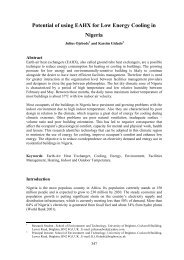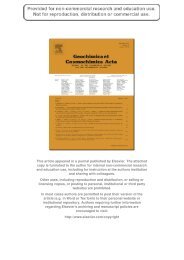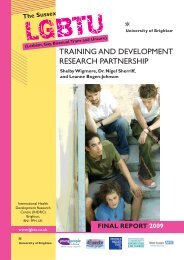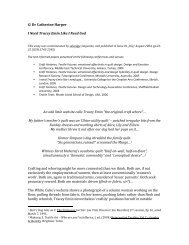LSC South East - lsc.gov.uk - Learning and Skills Council
LSC South East - lsc.gov.uk - Learning and Skills Council
LSC South East - lsc.gov.uk - Learning and Skills Council
Create successful ePaper yourself
Turn your PDF publications into a flip-book with our unique Google optimized e-Paper software.
2. Literature Review<br />
There is a large body of UK empirical research that examines the factors that<br />
influence the decision to participate in post-compulsory education between the<br />
ages of 16-18. Most of these studies, often carried out by educationalists,<br />
psychologists <strong>and</strong> economists, using different data <strong>and</strong> methodologies, find some<br />
agreement on the factors that influence this decision (Appendix A1 provides the list<br />
of references to the studies reported in this section. Appendix A2 provides a<br />
summary of data <strong>and</strong> methodologies used in selected studies reviewed below). It<br />
is important to note that there is almost universal agreement in the studies<br />
reviewed here, inter alia, that educational attainment at 16, measured by either O<br />
level or GCSE grades, provide an important indicator of an individual’s academic<br />
skills <strong>and</strong> aptitude for post-compulsory education <strong>and</strong> is found to be a significant<br />
determinant of participation rates. For ease of exposition we review the literature<br />
under four headings that convey the general influences on the decision to<br />
participate in post-compulsory education commonly found. These are: expected<br />
future earnings, family background characteristics, school effects, <strong>and</strong> the effect of<br />
<strong>gov</strong>ernment policy changes.<br />
2.1 Expected Future Earnings<br />
The theory of human capital is often used as a framework of analysis in many<br />
empirical studies (see Becker, 1993). Post-compulsory education is assumed to<br />
be an investment good <strong>and</strong> the returns to such investment, as measured by the<br />
future or lifetime discounted earnings stream associated with post-compulsory<br />
qualifications, is assumed, a priori, to be an important determinant of participation<br />
in education beyond the school leaving age. Researchers using labour market<br />
information from a variety of data sources (see Appendix A2), have constructed<br />
variables that proxy pupils’ expected lifetime earnings streams. These include: the<br />
future discounted earnings associated with graduate study; the future discounted<br />
earnings associated with different occupations; <strong>and</strong> the future discounted earnings<br />
received by different ethnic groups (see, for example, Leslie <strong>and</strong> Drinkwater, 1991;<br />
Andrews <strong>and</strong> Bradley, 1997; Rice, 1999). The results from this literature support the<br />
view that a pupil’s expected future earnings are significant in determining the<br />
decision to participate in post-compulsory education. Against this, studies using<br />
time series data over various periods since the 1950s, have suggested that higher<br />
levels of present <strong>and</strong> future youth <strong>and</strong> adult unemployment are associated with<br />
greater uncertainty regarding future earning streams <strong>and</strong> thereby discourage<br />
participation (see, for example, Pissarides, 1981; Whitfield <strong>and</strong> Wilson 1991; Rice,<br />
1999; McVicar <strong>and</strong> Rice, 2001; Clark, 2002). However, Micklewright et al (1988)<br />
found no evidence of an association between participation rates <strong>and</strong><br />
unemployment in the period 1974-78.<br />
2.2 Family Background Characteristics<br />
A consistent finding in cross-sectional studies is that the parental <strong>and</strong> socioeconomic<br />
background of a student has an important effect on the probability of<br />
participating in post-compulsory education. Such influences can be transmitted<br />
through parents’ ability to finance, encourage, <strong>and</strong> support their children in further<br />
5




